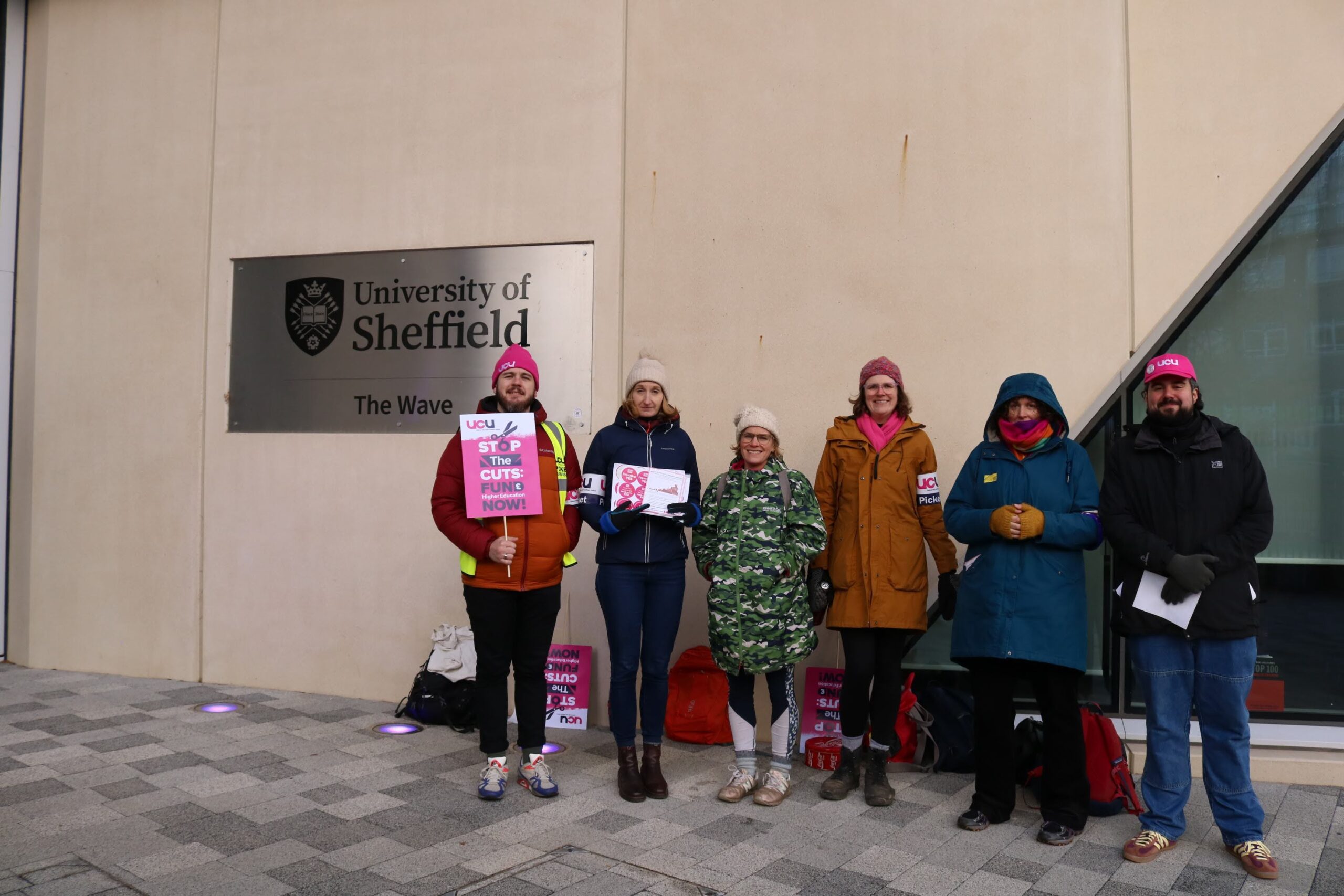Staff at both Sheffield universities have reached the mid-point of their proposed 28 days of strike action today, and find themselves in very different situations.
The strikes, organised by the University and College Union (UCU), were set to take place over four weeks, beginning the week commencing 10 November for Sheffield Hallam University, and the week commencing 17 November for the University of Sheffield.
At both universities, staff have decided to take action against cost-cutting measures by university management, which may put staff at risk of redundancy.
UCU general secretary Jo Grady said in a press release: “There is no justification for compulsory redundancies at the University of Sheffield or Sheffield Hallam, especially when there are other options available.”
Despite staff at the University of Sheffield being subjected to voluntary, rather than compulsory, redundancies, those at risk are concerned about what the future holds.
Dr Liam Stanley, a senior lecturer at the School of Sociological Studies, Politics, and International Relations, is participating in the strikes. He described a general atmosphere of anxiety amongst staff and raised concerns about his own job security.
He said: “I’ve got young children, I’ve got a mortgage, so the potential of losing my livelihood is an incredibly big deal.”

The University of Sheffield had previously made an offer to commit to there being no compulsory redundancies before 31 October 2026, and an additional pause on all new restructures until April 2026. This offer was declined by UCU, and has since been withdrawn following the eight days of strike action experienced over the past 2 weeks.
A spokesperson from the University said: “We have been clear that to reach any agreement we must avoid further disruption to our students as a result of ongoing industrial action of any kind.”
Elsewhere in the city, management at Sheffield Hallam University has refused to rule out compulsory redundancies, despite having already removed 500 jobs last year, and a further 170 since May 2025.
However, Hallam’s branch of the UCU is involved in negotiations regarding an offer that was put to them by the university earlier this week.
Professor Tom Smith, Communications Officer for the UCU branch, feels confident that there have been some positive aspects to the offer, although the details of these cannot be revealed until the outcome is certain.
Strike action planned for Monday 1 to Friday 5 December at Sheffield Hallam University has been called off. But for many students, especially those with additional external factors impacting their learning, the damage has already been done.
Georgia Roberts, a psychology and criminology student at Sheffield Hallam, has experienced stress as a result of strike action happening at the same time as assignments are due.
She said: “There is still support available, but it’s not face-to-face, which, as a student with autism, I feel like I need more.”
Similarly, Camilla Prida, a senior university teacher at the University of Sheffield, is concerned that her students from widening participation backgrounds aren’t getting the support they need to cope with her absence during strikes.
“My stress levels are through the roof. I hope students realise this isn’t a decision I’ve taken lightly,” she said.
Despite the negative impacts it can have, disruption to the student experience is the “only way” to get the university’s attention, says University of Sheffield striker, Amy Shaw.
It seems that finding this balance between student welfare and maximum impact is an issue to consider if strikes continue.
Image Credits: Christopher Thomas




